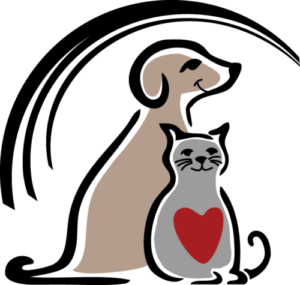Library
-
Hepatic encephalopathy is a neurologic condition in cats and dogs that is caused by an underlying liver condition. It can cause lethargy, seizures, problems with balance and coordination, and coma. Common causes, methods to diagnose the condition, and its treatment options are explained in this handout.
-
Hepatic lipidosis, also known as fatty liver syndrome, is unique to cats and is one of the most common liver diseases seen in cats. Usually a cat with hepatic lipidosis has recently gone through a period of anorexia (little or no eating) for 3 to 4 consecutive days. Diagnosis of hepatic lipidosis is made from blood tests that demonstrate poor liver function and/or from a liver biopsy or fine needle aspirate. Hepatic lipidosis is treatable with aggressive nutritional support until a normal appetite returns. Treating the underlying initial cause of the inappetence is also essential for full recovery.
-
Care of Open Wounds in Cats
Una herida es una lesión que provoca un daño en la piel y/o en las capas más profundas. Una lesión puede ser abierta, como un corte, o cerrada como una contusión o moratón.
-
Fight Wound Infections in Cats
Los gatos tienen un instinto muy territorial. Se pelean con otros gatos para proteger su territorio o para adquirir más territorio. Por tanto, las heridas por peleas son muy frecuentes en gatos. Se considera que el 90 % de las heridas infectadas en gatos se producen por mordeduras de otros gatos.
-
Feline viral rhinotracheitis (FVR) is an infectious disease caused by feline herpesvirus type-1. It is a major cause of upper respiratory disease in cats and is the most common cause of conjunctivitis. The typical symptoms of FVR involve the nose, throat, and eyes, and include sneezing, nasal congestion, conjunctivitis, excessive blinking, squinting, and discharges from the eyes and nose that range from clear and watery to thick and purulent (containing yellow/green pus). Treatment consists of supportive care, hydration of the environment, and control of secondary bacterial infections with antibiotics and antibiotic eye medications. An effective vaccine exists and is recommended for all cats.
-
High-calorie nutritional gel (brand name Nutri-Cal®) is a high calorie nutritional supplement for dogs and cats. It comes as an oral gel that is given to pets by mouth. This supplement is recommended for intermittent or supplemental use and should ideally be given at the same time daily.
-
The most common cause of hip dislocation is blunt force trauma such as a fall or an automobile injury. Most cats with a hip dislocation will have severe hind limb lameness and pain, and may not be able to put any weight on the affected limb. A diagnostic X-ray will show the direction of dislocation, and whether a fracture of any part of the hip joint has occurred. In many cases, it is possible to replace the femoral head in the acetabulum by manipulation under general anesthesia. If the femoral head has been successfully replaced and the correct postoperative treatment has been adhered to, it is unlikely that the hip will redislocate.
-
Histoplasmosis is an infection caused by histoplasma, a fungus found in moist soils and especially prevalent around the Ohio, Mississippi, Missouri, and St. Lawrence rivers, as well as the southern Great Lakes and Alberta. Fungal spores are inhaled or ingested and cause infection in many sites including the lungs, gastrointestinal tract, eyes, joints, and spleen. This handout outlines signs, diagnosis, treatment, and prognosis. Histoplasmosis is transmissible to humans, especially if they are immunocompromised.
-
There are many potential hazards that pets face during the holidays. With common sense and planning, exposure to these hazards can be avoided, preventing injury or illness. Hazards include tinsel, electrical cords, string from meat, ribbons, Christmas tree water, holiday plants, and food such as chocolate. Some cats do better if given a safe space to stay, away from company, and may require calming remedies to help minimize anxiety and stress during the holidays.
-
While the holidays add excitement to the winter months, we cannot forget about indoor and outdoor toxins frequently seen at this time of year. Keeping your pets healthy and safe will help keep the holidays stress free.

